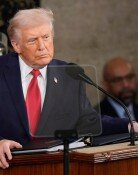Clotted Monetary Circulation System
Clotted Monetary Circulation System
Posted March. 24, 2005 22:24,
In Ms. Shin Yang-hees closet, a check worth 15 million won has been sitting for a month.
Ms. Shin, who is in the interior business, cancelled her installment savings to put a down payment on an apartment last month, but the deal was called off because the apartment owner changed her mind.
Ms. Shin thought about putting the money back into the savings account, but the interest rate, in the 4 percent range, is just not feasible. Her daughter wants to have LASIK surgery done on her eyes and the husband suggests buying a new car.
But Ms. Shin says, I am not comfortable with spending such a hefty sum, and she thinks, Its unlikely that I will be able to decide how to spend this 15 million.
The circulation of money is at a standstill.
It is because, with noticeably less financial and commercial transactions being made by the main economic subjects, i.e. the households, banks, and enterprises, the speed at which the money travels has slowed down considerably.
According to the Ministry of Finance and Economy and the Bank of Koreas report on March 24, the speed of currency circulation for the fourth quarter (Oct.~Dec.) of last year stood at 0.618. This figure dwindled continuously from 0.737 in 1997 to reach 0.614 in 2002. It seemed to recover in 2003, but it has recently made another downturn.
Households, Banks, and Enterprises: It is Difficult to Spend Money.
As money is handed over to each economic subject, from the household, to the bank, and to the companies, it seems to be stalled for an even longer interval each time.
Now that more and more people are keeping cash at home, the savings total held by the banking community decreased 1.1 percent from 722 trillion won, the total in December 2004, down to 714 trillion this January.
The banking sector cannot find good investment items to give out loans on. Mortgage applications by individuals have decreased remarkably, and healthy enterprises with repayment capabilities are not looking for loans.
So the amount of outstanding loans given by banks has fallen by three trillion won from 571 trillion won in December, 2004, to 568 trillion won in January of this year.
The vice-director of the retail products team, Sohn Hong-ik, at Kookmin Bank said, The loan market is so fully saturated that it is difficult to find demands for new loans.
The businesses are reluctant to spend money because of the gloomy economic outlook.
The total cash reserve of an ICT company, S, stands at 200 billion won. Company S kept this money in the company vault last year. Only a small portion was invested in real estate and securities. A company official said, The total revenue fell by 30 percent or more over a years time because no new investments were made while existing businesses slowed at the same time.
Must Get Rid of Investment Hurdles
The major reasons that are keeping economic agents from making investments are the increased tendency to keep cash at hand brought on by the low interest rates, dwindling loan demands, and uncertainties about making new investments.
The experts advise that these hurdles must be removed.
Banks should increase loans to small and medium-sized enterprises (SMEs) by improving the routine practice of focusing on households and large companies. The experts see the need to grant loans on a project-by-project basis by improving the credit evaluation system for SMEs.
An economics professor at Myeongji University, Cho Dong-geun, suggested that various restrictions that stop business investments, like the limits set on investment ceilings, should be removed in order to motivate companies to spend money.
legman@donga.com






![‘부화방탕 대명사’ 북한 2인자 최룡해의 퇴장 [주성하의 ‘北토크’]](https://dimg.donga.com/c/138/175/90/1/wps/NEWS/IMAGE/2026/02/27/133414028.1.jpg)
